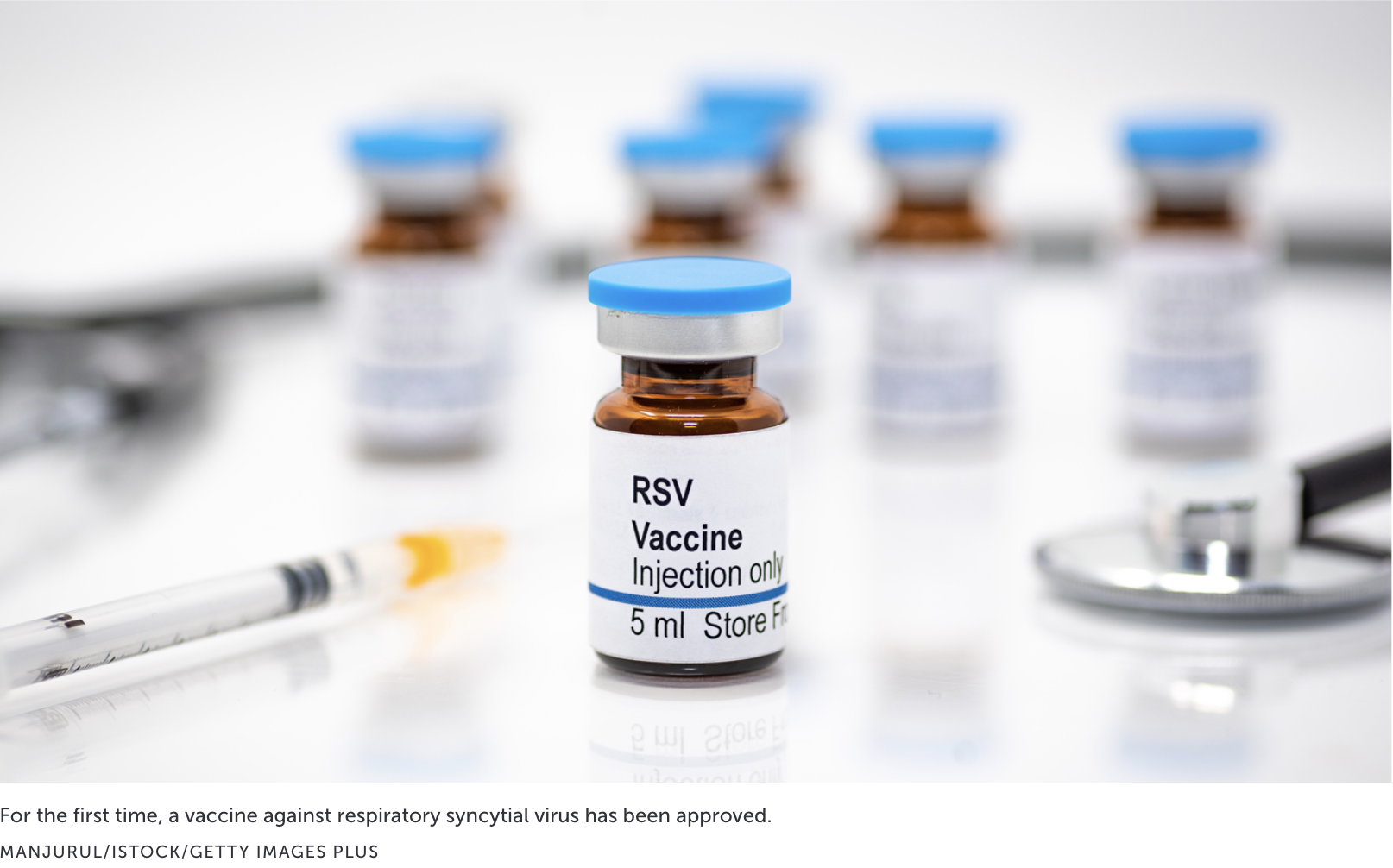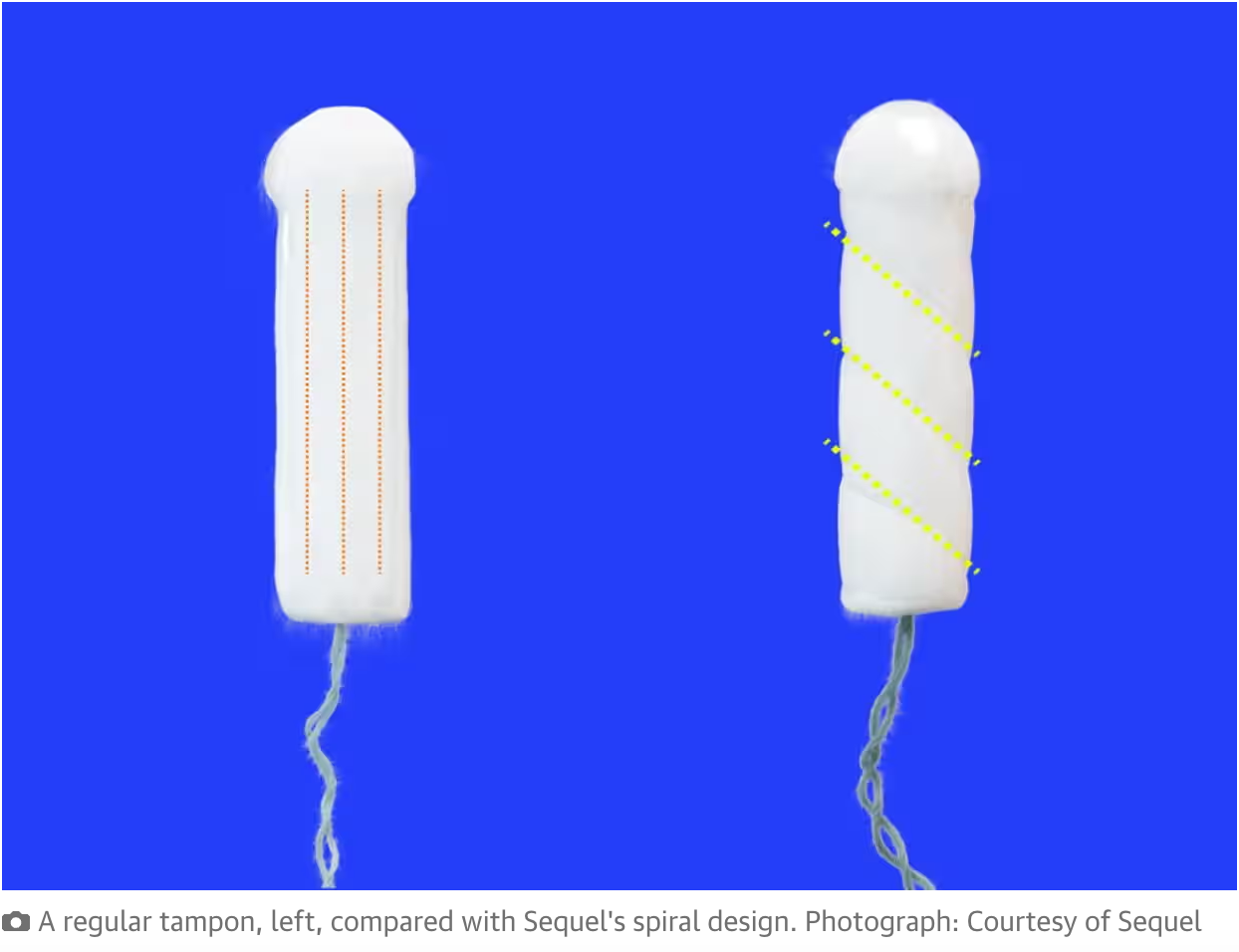Health Canada Approves First RSV Vaccine, New Tampon Design, Disrupted Brain Circuits and Disordered Eating in Obesity, New Parasitic Infection Found in Humans, Another COVID Variant.
The Full Panel meets your TLDR (Too Long; Didn’t Read) needs by delivering the latest medicine & health news in a nutshell. 🥜
Health Canada has approved the first vaccine for respiratory syncytial virus (RSV) for adults aged 60 and over

Gist: Health Canada has approved the first vaccine for respiratory syncytial virus (RSV) for adults aged 60 and over, though limited quantities are expected for this fall's respiratory virus season. RSV is highly contagious and can cause bronchiolitis or pneumonia, particularly in vulnerable populations. The vaccine, called Arexvy, manufactured by GSK, was approved after the U.S. FDA's May approval. Dr. Samir Sinha, geriatrics director in Toronto, expects the vaccine to significantly prevent severe illness and death in older Canadians.
Nitty-Gritty: RSV is more dangerous for older individuals, prompting doctors to call for an RSV vaccine for seniors. GSK's vaccine, with an 82% efficacy in preventing lower respiratory tract disease and 94% efficacy in seniors with medical conditions, shows promise. RSV infections can lead to complications, such as bacterial or viral pneumonia, and potentially trigger other health issues.
Big Picture: The vaccine is a single-dose injection, and though guidance on its use is expected from the National Advisory Committee on Immunization (NACI) next year, provinces will determine its inclusion in existing RSV programs. There's hope that the government will cover vaccine costs, removing barriers to access. As RSV season starts in late fall and lasts until spring, experts emphasize the importance of vaccinating seniors.
For infants, RSV poses a significant risk, and while there's no RSV vaccine for children, antibody injections like nirsevimab can protect them during the season. The CDC recommends nirsevimab for babies born before or during RSV season and those younger than eight months at the season's start.
Original source: here.
After 90 years (❗️), the FDA has finally approved a new tampon design 🩸

Gist: After over 90 years of largely unchanged design, the FDA has approved a new tampon design created by startup Sequel. The innovative design features diagonal grooves spiraling down the tampon, aiming to improve fluid absorption, reduce leakage, and enhance reliability during menstruation.
Nitty-Gritty: The founders of Sequel, Greta Meyer and Amanda Calabrese, developed the prototype as Stanford classmates in 2018. The tampon underwent FDA premarket review, including safety and effectiveness testing, gaining approval for medical use this month.
The menstrual product industry has seen limited development due to historical scandals, such as the 1980 withdrawal of Procter & Gamble's Rely tampons due to health concerns, including toxic shock syndrome. Safety concerns have limited changes to tampon absorbency. Period stigma and societal pressures to conceal menstruation have also hindered innovation in the industry.
Big Picture: Meyer acknowledges the challenge of changing consumer habits and preferences. Despite this, Sequel plans to introduce their spiral tampons to the market by the end of 2023, potentially offering a new solution to a product design that has remained largely unchanged for decades.
If you want to read an OB/GYN's in-depth review of this new design, you can check out Dr Jen Gunter's article here.
Original source: here.
New research links disrupted brain circuit connections and disordered eating in obesity

Gist: New research from the University of Pennsylvania's Perelman School of Medicine reveals a link between disrupted brain circuit connections related to memory and appetite regulation and body mass index (BMI), particularly in individuals with disordered or overeating habits that lead to obesity, like binge eating disorder (BED). The study, published in Nature, identifies impaired connections between the dorsolateral hippocampus (dlHPC) and the lateral hypothalamus (LH) in obese individuals, impacting their emotional responses when anticipating rewarding meals or treats.
Nitty-Gritty: Researchers monitored brain activity in epilepsy patients as they anticipated and received a sweet treat, finding that the dlHPC and LH were activated simultaneously. The strength of the connection between these regions was found to be impaired in relation to BMI, with higher BMI participants experiencing more disruption. Brain tissue analysis confirmed a link between the dlHPC and LH through the presence of melanin-concentrating hormone (MCH), which regulates feeding behaviour.
Big Picture: Casey Halpern, senior author and associate professor of Neurosurgery, suggests that the findings could help identify those at risk of obesity and inform novel therapies targeting these brain circuits to address obesity and related eating disorders. The research highlights the complex nature of conditions like obesity and disordered eating and emphasizes the importance of understanding neural circuitry in addressing them effectively.
Original source: here.
World's first case of parasitic infection in humans caused by roundworm, Ophidascaris robertsi 🤢

Gist: Researchers from The Australian National University and the Canberra Hospital have discovered the world's first case of a parasitic infection in humans caused by a roundworm, Ophidascaris robertsi, typically found in carpet pythons.
Nitty-Gritty: The 8-centimeter roundworm was extracted alive from the brain of a 64-year-old Australian woman who had experienced various symptoms, including abdominal pain, diarrhea, fever, cough, shortness of breath, forgetfulness, and depression. The woman likely became infected while collecting native grass near a lake, where a python had shed the parasite through its feces. While roundworms are common in snakes, they are accidental hosts in humans. The roundworm's presence in the brain was confirmed through parasitology experts, and the case highlights the risk of zoonotic infections, where diseases pass from animals to humans.
Big Picture: The study underscores the importance of food safety, especially when foraging or gardening in areas with wildlife. Although this specific infection doesn't transmit between humans, it highlights the broader issue of emerging zoonotic infections and the potential overlap of habitats between humans and animals. The patient, who continues to be monitored, demonstrated patience and courage throughout the process.
Original source: here.
Health officials in British Columbia have identified the first case of the BA.2.86 COVID-19 variant in Canada 😷

Gist: Health officials in British Columbia have identified the first case of the BA.2.86 COVID-19 variant in Canada. The variant was detected in a person in the Fraser Health region, east of Vancouver, who had not traveled outside the province. The Provincial Health Officer, Dr. Bonnie Henry, and B.C. Health Minister Adrian Dix stated that while the emergence of the variant was not unexpected, it has not been associated with increased severity of illness and the individual is not hospitalized.
Nitty-Gritty: The BA.2.86 variant has been classified as a variant under monitoring by the World Health Organization (WHO). Despite its high number of mutations and global spread since its identification in July, the potential impact on spread and severity remains uncertain. Dr. Brian Conway, an infectious diseases specialist, noted that the variant is likely to have been circulating for weeks or months.
Big Picture: Health officials emphasized the importance of staying home when sick, wearing masks as needed, practicing hand hygiene, and staying up-to-date on vaccinations. The emergence of new variants serves as a reminder that COVID-19 is still a threat, and as the fall season approaches, experts anticipate a potential increase in COVID-19 cases, hospitalizations, and mortality.
Original source: here.
Interested in previous newsletters or other articles we’ve published? Check them out here at: thefullpanel.com
Got a question for us? Suggestions for content you’d like to see? Feedback? E-mail us at: hello@mail.thefullpanel.com
